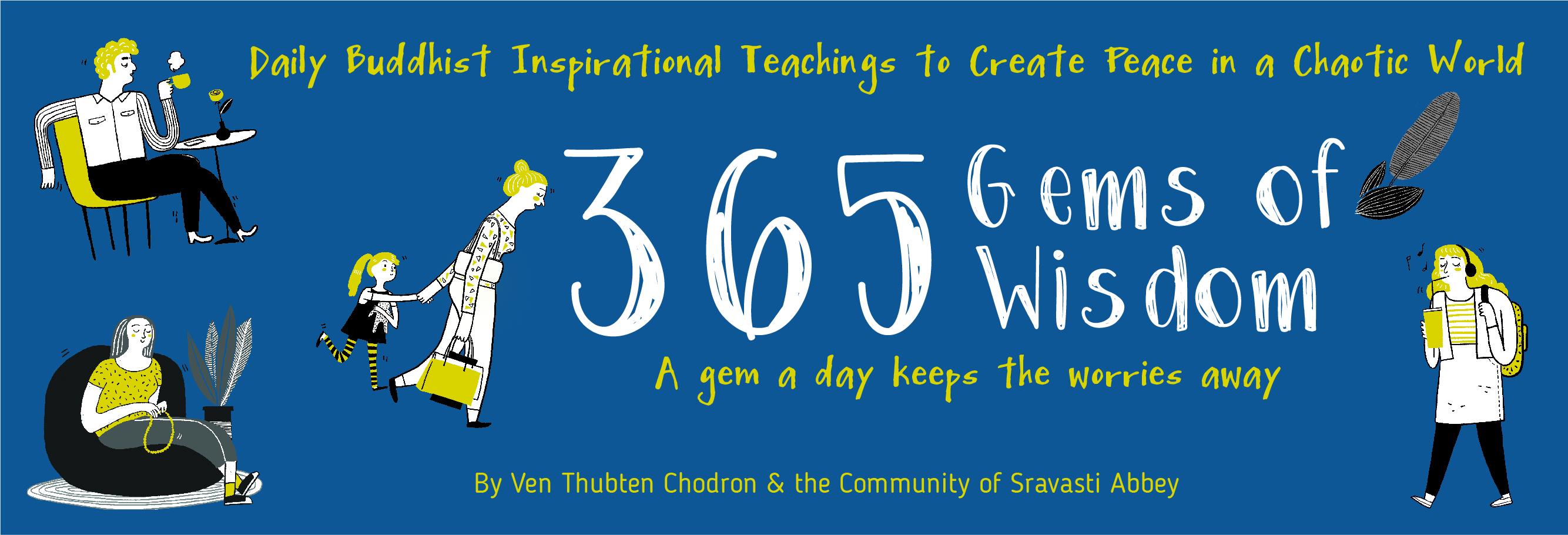August 19 : The Six Causes of Afflictions: The Media
I have had some friends in media, and when I bring up what I consider to be an obvious fact, that media tells us who we are and shapes who we are, the response they say is, “No, we don’t, we’re just responding to what people want.” They see themselves as just responding to what people in society want, but it goes the other way even more powerfully because what we see in the media is what we have taken on since the time we were children. It has conditioned us to think about who we should be and how we should think and act.
Much of that influence is detrimental. When we look, starting with the cartoons we watch when we were children, the cartoons are violent, and we learn to laugh at one cartoon figure clobbering another one. We do not see examples in the media of people helping each other. We see examples of people quarrelling. We see examples of people fighting. We do not see examples of how people reconcile after difficulties by having genuine communication and working things out. We do not see examples of co-operation, or even compromise.
The way the media tells us how we should act as women, and how we should act and look as men, is very, very harmful. The models we see in the advertisements all have these beautiful bodies, and in fact, the people who appear in the pictures do not even look the same as the pictures in the magazine because the magazine pictures have been altered. Everybody looks better. Nobody has freckles or moles. Everybody looks slimmer. Everybody’s hair is of the same colour. The models do not even look like the pictures in real life. Yet this is presented to us as how we should look.
The same goes for men. You see the pictures in magazines, and you are taught you should look and act a certain way. Nobody is like that. What it does is it develops an attitude inside of us that we are not good enough because we do not look like the people in the ads, we do not look like the movie stars. We do not look like the sports heroes. And these instill in us the feeling of: “I’m not good enough.” This has been inculcated in us since the time we are very little, largely due to the media, and this becomes a major obstacle to people’s happiness and to Dharma practice, and it certainly is the cause of a lot of our afflictions. When we do not feel like we are good enough, it provokes our attachment to what we think we should look like, which makes us act in certain ways. It provokes anger and resentment. It provokes jealousy. It is basically a disaster for us in terms of our psychological well-being.
Responsible media has to show examples of how to get along with people. How to forgive ourselves. How to forgive others. How to co-operate. How to generate tolerance instead of always negatively dwelling on everything. We need to be much more careful about how we relate to the media in terms of what we watch, and even when we watch stuff, how we interpret it, and how we take it in.
“365 Gems of Wisdom” e-book is out now!

